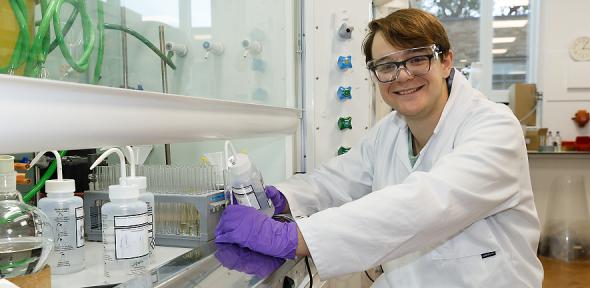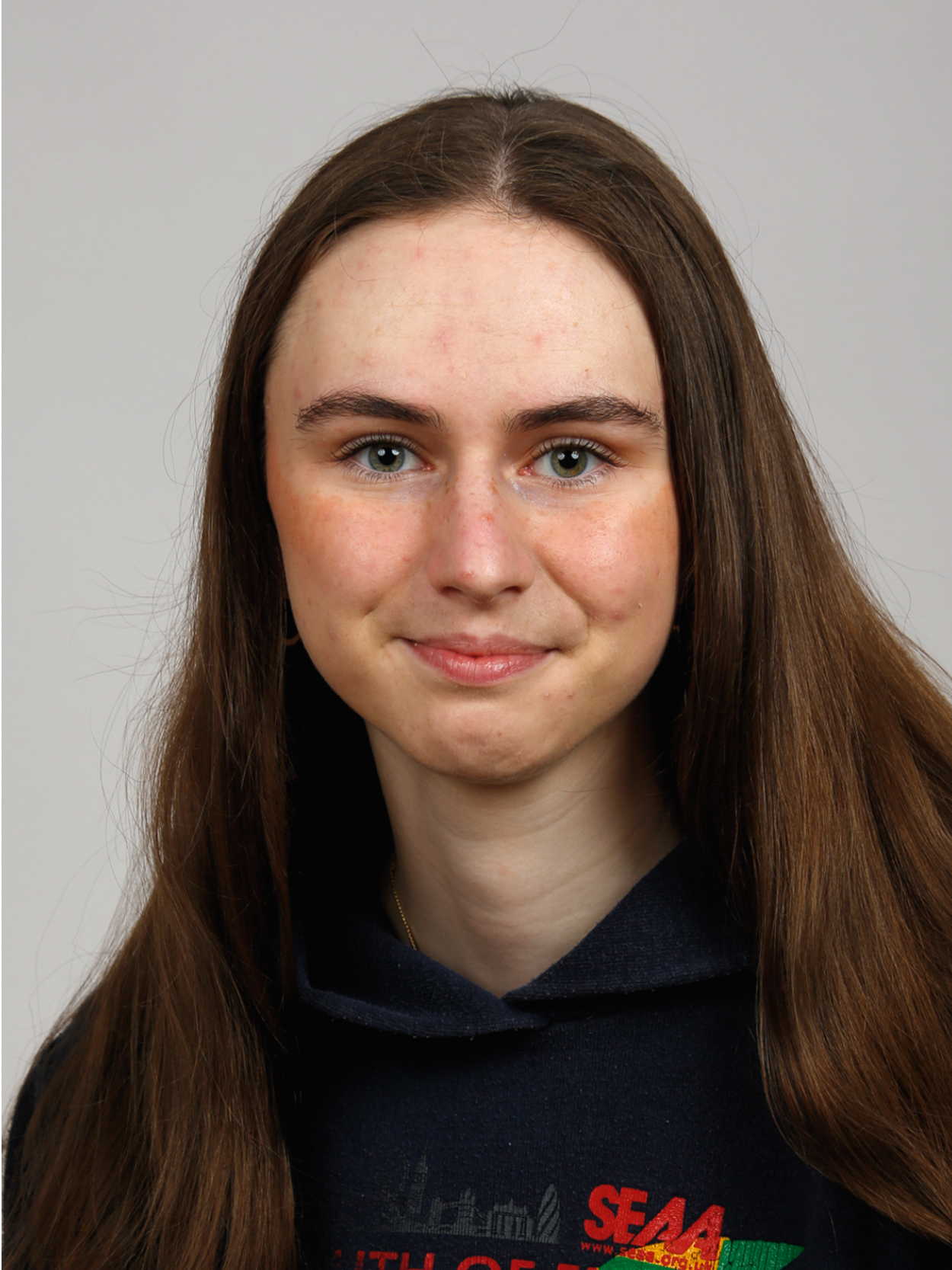
Last year our Chemistry@Cambridge Opportunity Fund and alumni gifts supported four undergrads to experience what it’s like to complete a project in a research group. Two of them report on their experience.
Jonah Eicke
Jonah (Trinity Hall) completed an eight-week summer internship in Professor Matthew Gaunt’s synthetic chemistry group. He is now completing his Part III project in the Gaunt group, working on guanosine functionalisation.
During Part II Chemistry, I was thinking about applying for a PhD, but I didn’t know for sure, so a summer internship was a good way to try it out. I had developed an interest in synthetic chemistry and I wanted the chance to get some experience in the lab, so I applied to Prof Gaunt’s group.
I worked with Dr Abigail Barker-Mountford on the synthesis of a molecule called cGAMP, which plays a role in the natural immune response. The group has a partnership with a group at Addenbrooke’s to test modified versions of cGAMP, but before you can modify it you have to make some!
I think the biggest thing I learned was developing practical, useful chemistry skills. I am already using them for my Part III and I will need them for a PhD. I also learned a lot from seeing how people went about their research. It was different from lectures and supervisions and practicals; I had a supervisor but was also working for myself, on my own ideas.
I enjoyed my time going into the lab. I thought ‘I could do this for four years’ so I’m now applying for PhD programmes. I’d like to thank the funders of the internship: They’ve provided me with a really brilliant opportunity, and I am grateful.
This fund also supported Harveen Kaur’s project in Professor Angelos Michaelides’ ICE group.
Amber Wright
 Amber's (Trinity) project in Professor Stuart Clarke’s surface science group. She is now looking at Master’s programmes in physical chemistry.
Amber's (Trinity) project in Professor Stuart Clarke’s surface science group. She is now looking at Master’s programmes in physical chemistry.
I was doing my Part II in Chemistry and I wanted to get some lab experience and a feel for what it might be like to do a PhD. I like physical chemistry so I chose a project on battery electrolytes.
To develop new and better electrolytes for batteries, we need to know how they behave in solution. I was looking at their freezing point depression, which is the principle we see when we put salt on roads in cold weather to prevent ice formation. This occurs when we add any solute to any solvent. If we can precisely measure the amount the freezing point changes after doing this, then we gain information about the electrolyte. Our hope is that this method will provide a quicker alternative to DFT (density functional theory) calculations.
I learned a lot during my internship about how projects run: I made bumpy progress and the technique didn’t work particularly well, so I think it gave me a more realistic view of research. I also became much more interested in the practical applications of research, and now I am looking for a Master’s with sustainable applications.
I would like to say thank you very much to Wyn Lewis-Bevan. I really enjoyed the project, I loved working in a collaborative lab environment, and to feel so supported and capable whilst doing the project made me very excited about my future career.
This fund also supported Iona Lynn’s project with Dr Mike Casford.
This article first appeared in Chem@Cam magazine Winter 2023 Issue 67 pg 12.
